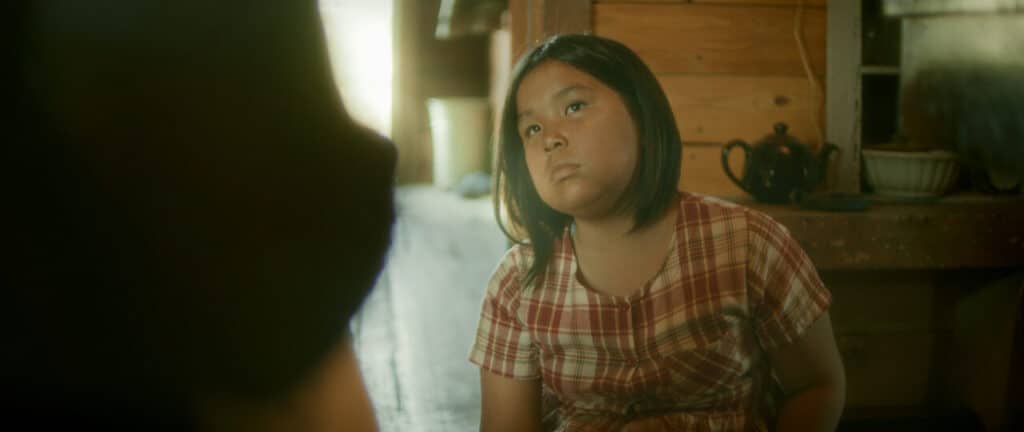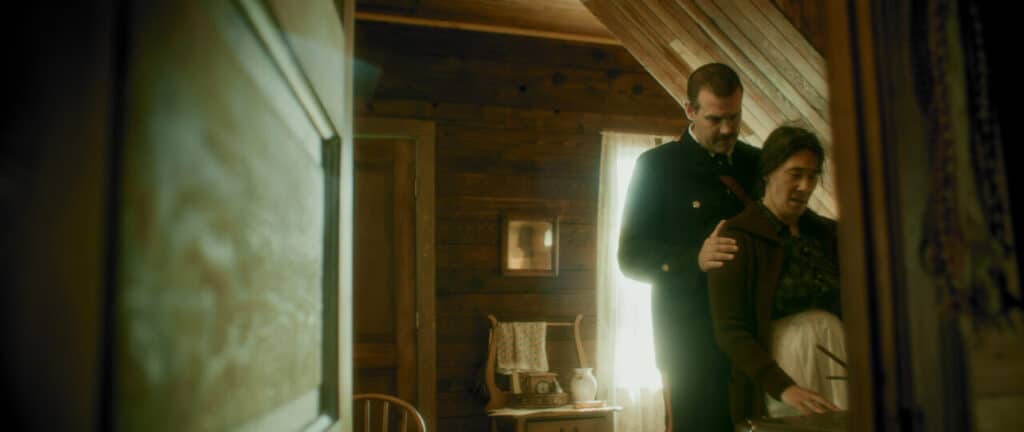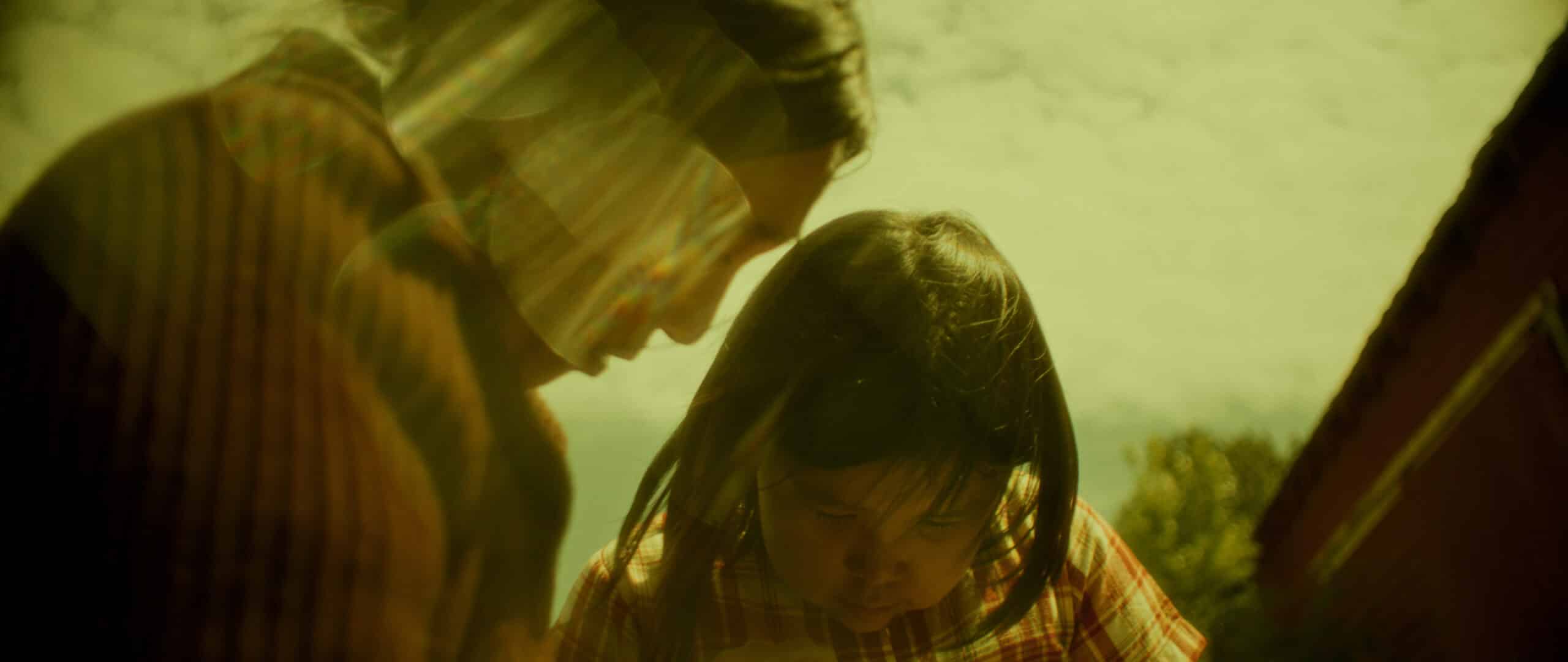NIGIQTUQ ᓂᒋᖅᑐᖅ, which was celebrated by the jury for its “moving,” “visceral” power, is based on a story told to Lindsay by her grandmother.
A new film by artist and ECU faculty member Lindsay McIntyre has won the Live Action Short Award at the 2023 imagineNATIVE Film + Media Arts Festival.
Titled NIGIQTUQ ᓂᒋᖅᑐᖅ (The South Wind), the short drama was lauded by imagineNATIVE’s Moon Jury as an “incredibly moving story that brings you to tears” and “viscerally” connects the audience to its characters’ experiences.
“From the first frame, you are watching cinematic beauty from a filmmaker who understands the medium of cinema and knows how to conjure the spiritual element that sits within the most beautiful of our Indigenous cinematic offerings,” the jury writes. “Lindsay’s unique cinematic voice and talent is as clear and heartfelt as the South Wind it comes from.”
The Live Action Short Award is imagineNATIVE’s Oscar–qualifying category, meaning NIGIQTUQ ᓂᒋᖅᑐᖅ will be put forward to the Academy of Motion Picture Arts and Sciences for award consideration. The award also comes with a $7500 cash prize.
Lindsay, who often works in experimental documentary, says “it was a total shock” to win an award for a drama.
“Drama is so, so hard, and I have much respect for the people who do it. It’s really incredible to be honoured within this sphere,” she says. “But really, I think of the award as support for the story. Because it’s a really important story that we don’t talk about or know about, and it’s something I’m really passionate about bringing to the world.”
NIGIQTUQ ᓂᒋᖅᑐᖅ is based on a true story told to Lindsay by her grandmother. It connects to a larger story that is touched upon in several of Lindsay’s other films, including her upcoming feature, The Words We Can’t Speak, currently in advanced development.
“Having left her Nunavut home in 1938 with her mother Kumaa’naaq (koo-MAT-na), young Marguerite must negotiate the unspoken pressures of being Inuk in her new life in the South,” reads the film’s synopsis. “When an extraordinary letter arrives from home, Marguerite discovers what’s really expected of her.”
The narrative reveals a type of benevolent racism that at once aims to erase Indigeneity and all its markers while purporting that it’s “for their own good”.
NIGIQTUQ ᓂᒋᖅᑐᖅ, which translates to “South Wind,” refers to an Inuit concept which celebrates positive change but also carries a caution.
“The south wind may bring blue skies and better conditions, but there’s also a sense of warning or a need to be present, because you can’t forget that the wind will always change back,” Lindsay says. This metaphor underscores Lindsay’s broader project of foregrounding an overlooked chapter in Canadian history.

“We know about residential schools and some of the other big ugly colonial wrongs, but we don’t often think about Inuit in the same way,” she says. “We don’t think about what the world was like for Inuit when the RCMP and the traders and the whalers and the missionaries showed up. My grandmother was an interpreter and servant to the RCMP in the early days of colonial interest so her story embodies how all of these different communities came together in a colonial context. And it’s unique because it was especially rare for an Inuk woman to be included in police business.”
Though NIGIQTUQ ᓂᒋᖅᑐᖅ takes shape as a more traditionally structured drama, it still includes Lindsay’s signature artistic engagement with the materiality of film. For instance, the work was almost entirely shot through broken glass filters. These kinds of experimental formal approaches aim to ground Lindsay’s stories conceptually, by considering every aspect of filmmaking as an opportunity to treat her subject responsibly and with sensitivity.
For example, an upcoming film titled Tuktuit explores the importance of caribou to Inuit survival, as well as to Lindsay’s grandmother, who was said to have been able to “skin a caribou before it hit the ground.” The film also traces Lindsay’s own learning around how to skin and process a caribou in a customary way. From that animal’s hide, Lindsay will make gelatin which will then be used to produce the emulsion her film will be shot and printed on. Meaning the film itself will actually contain the DNA of a caribou.
“For me, a work isn’t satisfying unless there’s some connection between the form and the content,” she says. “That connection between things is usually what I’m striving for in the work that I make.”

NIGIQTUQ ᓂᒋᖅᑐᖅ premiered at the Vancouver International Film Festival in September, 2023, and has also been programmed at the Anchorage International Film Festival, Garifuna International Indigenous Film Festival, Buenos Aires International Film Festival, Skábmagovat Film Festival, and the Whistler Film Festival. The film also appeared in a Nov. 15 retrospective of Lindsay’s works at the Berkeley Museum and Pacific Film Archive as part of their Alternative Visions series. Titled Seeing Them: The Films of Lindsay McIntyre, the program brought together eight of Lindsay’s films from the past 15 years.
NIGIQTUQ ᓂᒋᖅᑐᖅ was written and directed by Lindsay, and produced by Lindsay and Katrina Beatty. The film features cinematography by Wes Miron, with key cast including Brenda Amakłak Putulik, Naomi Ullikata Natseck and Lindsay Robinson. Support for NIGIQTUQ ᓂᒋᖅᑐᖅ was provided by the Canada Council for the Arts, BC Arts Council and COUSIN Collective.
Visit Lindsay’s website and follow her on Instagram to learn more about her work.
Visit ECU online to find out more about studying Film + Screen Arts at Emily Carr.
